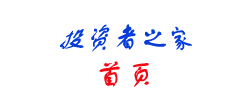liz

注册时间: 2005-07-08
帖子: 3


|
|
G7: Focus on free trade and currency聚焦自由贸易与中国汇率
World's leading economic powers push for easing restrictions on trade and China's currency.
December 3, 2005: 10:36 AM EST
LONDON (Reuters) - Finance ministers from the world's leading economies sought to breathe life into world trade talks on Saturday with an urgent appeal for the revival of negotiations ahead of a meeting in Hong Kong in 10 days' time.
"We want to do what we can at this opportunity. This is a $300 billilon dollar issue," British finance minister Gordon Brown said after chairing talks among the G7 rich nations that were attended also by Russia, Brazil, China and India.
After the meeting in London, they issued a communique in which they said:
"An ambitious outcome from the Doha Development Round (of trade talks) by the end of 2006 is essential to enhancing global growth and reducing poverty."
Currencies
The statement also urged China to go further on relaxing state controls on its exchange rate following a small revaluation last July.
"We expect that further flexible implementation of China's currency system would improve the functioning and stability of the global economy and the international monetary system," the communique said.
The request for more action from Beijing came as a surprise as the G7 was expected to adopt a softer tone after China revalued its currency by 2.1 percent on July 21 and scrapped a decade-old peg to the dollar.
The yuan is now under a managed float with reference to a basket of currencies including the dollar, euro, and yen.
U.S. Treasury Secretary John Snow welcomed China's commitment that market forces will play an increasing role in the setting of domestic exchange rates but added there was still too much rigidity in Beijing's currency regime.
"However, even with the change of July 21, China's new exchange rate system has operated with too much rigidity. This rigidity constrains exchange rate flexibility in the region and thus poses risks to China's economy and the global economy," Snow said.
The United States wants China to allow its currency to appreciate further, arguing that it is still undervalued and gives China's exports an unfair advantage on international markets.
Snow also urged the International Monetary Fund to be more forceful in its advice to economies on foreign exchange rates and said it had been too muted.
Compromising words
On trade, comments from ministers at the meeting in London showed the divisions that continue to plague prospects of a deal once countries have to make concessions on the crucial issues.
In a move that troubled the French in particular, Brown was urging an end to subsidies for farmers in rich countries -- aid and tariffs that are worth about $280 billion a year, according to the OECD.
That is one of the stumbling blocks in negotiations ahead of a meeting of trade ministers from the 148 countries of the World Trade Organisation in Hong Kong on Dec. 13-18.
"Agriculture is not the only dossier," French Finance Minister Thierry Breton said, restating France's line that the trade talks also covered services, industry, and intellectual property.
Brown, chairing the talks, kept up the pressure, although the forum he chose is not one where people go into detail on the complexities of trade negotiation.
Brazilian finance minister Antonio Palocci said concessions offered by Europe and the United States on reductions in aid to their farmers were "insufficient."
Brazil had suggested to British Prime Minister Tony Blair that leaders should meet if needed ahead of Hong Kong -- possibly of the same group of rich countries and several others.
Both Brazil and India had suggested they could offer more concessions, Brown said.
Trade ministers from some of the main economic regions were meeting separately in Geneva.
France is unhappy about concessions being made on the European Union's behalf in the run-up to Hong Kong and Breton is on a tight leash in London with President Jacques Chirac set on protecting his country's farmers.
The G7 meeting was also devoted to discussing risks facing the world economy, such as huge U.S. deficits and weak growth in Europe where the European Central Bank has just raised interest rates.
|
|
|
|
|
|


